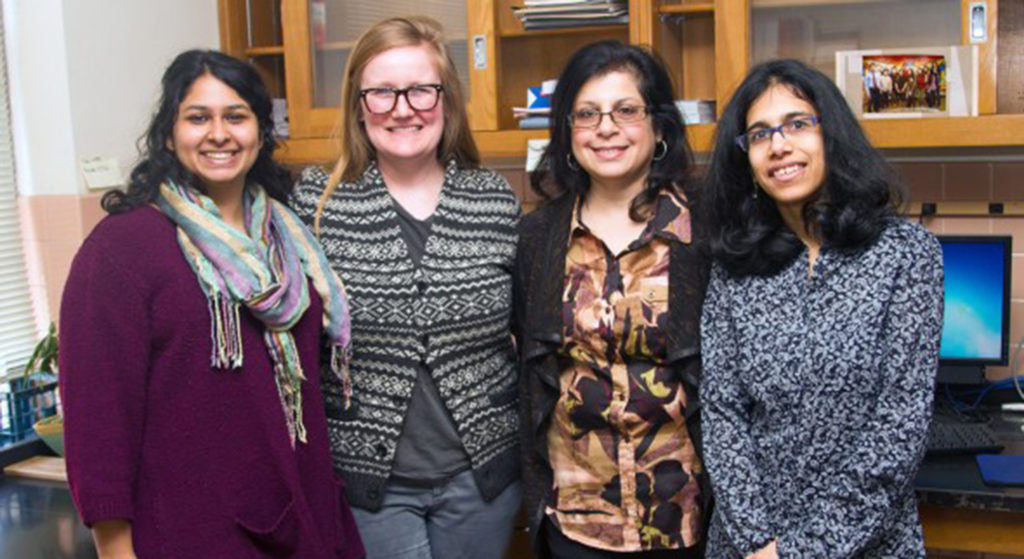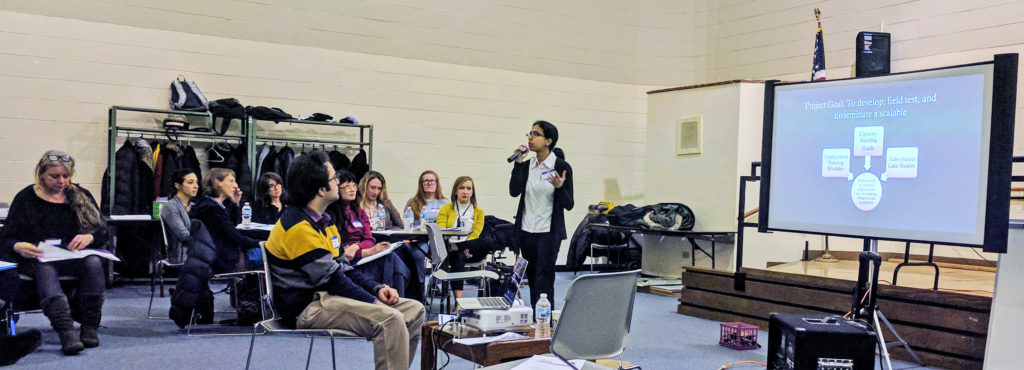Supporting refugees with disabilities
Friday, April 21, 2017

When refugees enter the U.S., they often turn to social service organizations — such as refugee resettlement agencies, voluntary agencies, and mutual aid associations — to connect with job opportunities. But refugees who have a disability are faced with a different scenario.
“If a refugee with a disability comes through the door, they connect them with Social Security income and leave it at that,” said Mansha Mirza, co-principal investigator and assistant professor of occupational therapy.
A new UIC initiative that has partners on the east and west sides of campus, along with several community partners that represent the refugee, disability, and employer sectors, is working to change that scenario by helping refugees who have disabilities find employment opportunities in Illinois. Partners of Refugees in Illinois Disability Employment (PRIDE) — the first initiative of its kind across the nation — examines refugee status and disability status in the context of employment and career paths.
Funded by a three-year grant from the National Institute on Disability, Independent Living, and Rehabilitation Research (NIDILRR), the project aims to help link refugees who have disabilities with job and entrepreneurship opportunities.
“We are excited to be partnering with refugees with disabilities and allies from a wide range of sectors who support the vision of this project, which is to support job-seeking refugees with disabilities,” said Rooshey Hasnain, principal investigator of PRIDE and clinical assistant professor of disability and human development and rehabilitation sciences.
The initiative will provide support to at least 50 refugees who have disabilities in the Chicago area, said Mirza, project co-investigator. Participants will engage in educational activities and workshops to learn about their rights as people with disabilities, Mirza said. They will then be connected with community organizations that can help them find employment opportunities.
“We’re really trying to be comprehensive but also practical in terms of what could be the most useful tools for refugees to obtain employment or career paths,” Hasnain said. “The experience of the refugee is very different from somebody who is native-born, even though they may have parents who immigrated here.
“Some refugees are coming to their second, third or fourth country,” she said. “There could be complex trauma involved — war-related experiences. Those are factors we have to keep in mind. Language is a huge barrier, too.”

Some refugees who previously had professional careers — like physicians, lawyers or accountants — may not be able to find similar positions as they resettle because of different credentialing requirements in the U.S., Hasnain said.
“Many of these individuals have been disabled in their home country or became disabled as they were exiting and fleeing through their second country,” she said.
Participants will also learn how to start their own businesses through entrepreneurship workshops led by faculty in the College of Business Administration and Institute for Entrepreneurial Studies.
Entrepreneurship can help refugees break through some of the employment barriers that they face, said Maija Renko, a partner on the project.
“They might have been professionals in their home countries but in an environment where they don’t speak the language, starting their own business may be something that makes sense at that point,” said Renko, associate professor of entrepreneurship.
Participants will receive training on how to start their own business and consultation on how to make their startups successful, Renko said. The project will also provide start-up funds to qualified participants who want to start their own business, Mirza said.
“We know from history the typical career path of people who immigrate,” Renko said. “Entrepreneurship is a typical part and it’s great that it’s a focus of this project. It’s not only about finding employment, but creating your own employment.”
The project hopes to partner with corporations in the future to provide more workforce opportunities for participants, Hasnain said.
Other UIC partners include faculty in the department of disability and human development, the Great Lakes ADA Center and the UIC Assistive Technology Unit.
Community partners include Asian Human Services, the Division of Rehabilitation Services of the Illinois Department of Human Services, Refugee One, Heartland Human Care Services, the Mayor’s Office for People with Disabilities, Access Living, Upwardly Global, Career and Business Services, and the Rogers Park Chambers of Commerce, among others.
“We need to break through these stereotypes — the disability stereotype, the immigration stereotype and the refugee stereotype — and provide refugees with disabilities that same access to opportunities that refugees without disabilities are gaining,” Hasnain said.